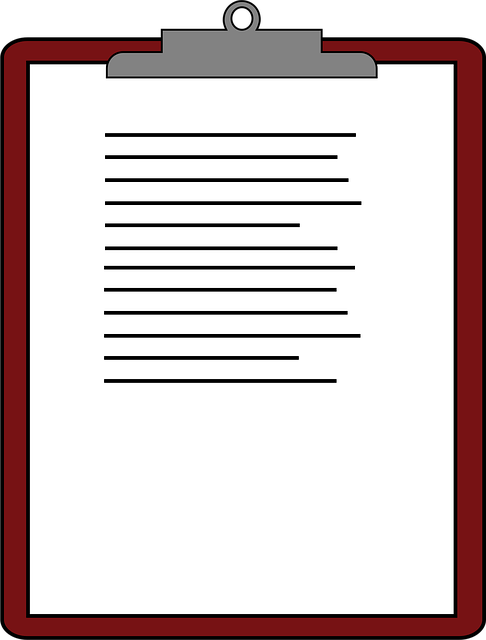Professional translation services for UK Informed Consent Forms are crucial for effective communication in multicultural healthcare. They ensure accurate, legally valid translations, maintaining patient autonomy and safety by preventing misunderstandings. These services combine medical expertise with linguistic proficiency to convey complex information clearly, fostering trust between healthcare providers and diverse communities. Choosing reliable, specialized translators is vital for compliance, quality assurance, and positive patient outcomes in a globalized healthcare environment.
In the diverse healthcare landscape of the UK, ensuring patient consent forms are accessible and understood across various languages is paramount. This article explores the intricate process of translating consent forms for UK healthcare compliance, delving into critical aspects like legal requirements, cultural considerations, and best practices. Discover how professional translation services play a pivotal role in bridging language barriers, enhancing patient safety, and improving overall medical documentation. Learn about the benefits of multilingual consent forms in meeting regulatory standards while prioritizing exceptional patient experiences.
- Understanding UK Healthcare Consent Form Requirements
- The Role of Translation in Medical Compliance
- Accurate Translation: Ensuring Patient Safety
- Navigating Language Barriers in Healthcare Documentation
- Best Practices for Translating Informed Consent Forms
- Cultural Considerations in UK Healthcare Translations
- Choosing the Right Translation Service for Medical Texts
- Quality Assurance in Healthcare Form Localization
- Legal Implications of Inaccurate Translations in Medicine
- Enhancing Patient Experience through Multilingual Consent
Understanding UK Healthcare Consent Form Requirements

In the UK, healthcare consent forms are a critical component of patient rights and informed decision-making. These documents ensure patients fully understand their medical options and potential risks, empowering them to give freely chosen consent for specific treatments or procedures. When dealing with multilingual patients, accurate translation services for UK Informed Consent Forms become essential.
Healthcare professionals must provide translated forms accessible in the patient’s native language to facilitate clear communication and avoid any misunderstandings. This process is not merely about translating words but ensuring the form retains its legal validity and complies with UK healthcare regulations. Professional translation services specialising in medical terminology are crucial to guarantee accuracy, preserving the integrity of the consent process across diverse linguistic settings.
The Role of Translation in Medical Compliance

In the healthcare sector, ensuring patient understanding and consent is paramount. When dealing with a diverse patient population, language barriers can pose significant challenges to medical compliance. This is where translation services play a crucial role in facilitating effective communication. For UK healthcare providers, translating informed consent forms is essential to ensure that every patient comprehends their rights, procedures, and potential risks.
Professional translation services for UK Informed Consent Forms are designed to bridge this gap by providing accurate and culturally sensitive language support. These services employ medical experts alongside proficient translators to maintain the integrity of medical terminology while adapting it for different linguistic audiences. By doing so, they enable healthcare professionals to obtain valid consent, respect patient autonomy, and uphold legal and ethical standards in a multicultural healthcare environment.
Accurate Translation: Ensuring Patient Safety

Accurate translation is paramount in healthcare, especially when dealing with patient consent forms. Inaccurate translations can lead to misunderstandings, miscommunication, and potential safety risks for patients. When it comes to Informed Consent Forms (ICF) in the UK, using professional translation services is crucial to ensure compliance and patient safety.
Translation services for UK ICFs should employ qualified linguists who understand medical jargon and cultural nuances. They must be adept at conveying complex information clearly and accurately, ensuring that patients from diverse linguistic backgrounds can fully comprehend their rights, responsibilities, and treatment options. This meticulous approach safeguards patient autonomy, fosters trust in healthcare providers, and promotes positive health outcomes.
Navigating Language Barriers in Healthcare Documentation

Navigating language barriers in healthcare documentation is a critical aspect of ensuring patient safety and ethical practices, especially when dealing with informed consent forms. In the UK, where healthcare services cater to a diverse population, accurate translation becomes essential to convey sensitive medical information effectively. Translation services play a pivotal role here, providing professional interpretations tailored to complex medical terminology.
These services ensure that every patient, regardless of their native language, understands their rights and responsibilities. With proper translation, healthcare providers can obtain meaningful consent, empowering patients to make informed decisions about their treatment. This process is vital for building trust between healthcare professionals and diverse communities, fostering a more inclusive and accessible healthcare environment.
Best Practices for Translating Informed Consent Forms

When translating Informed Consent Forms (ICFs) for UK healthcare compliance, accuracy and clarity are paramount. It’s crucial to engage professional translation services with specific expertise in medical terminology and cultural nuances. These services should employ qualified linguists who understand not just word-for-word translation, but also the importance of conveying complex medical concepts in simple, understandable language.
Best practices include ensuring that translators are familiar with UK healthcare regulations and legal requirements. They should be adept at adapting language to suit diverse patient populations, avoiding jargon that might confuse readers. Moreover, using standardized templates and maintaining consistency in terminology across all translated documents is essential for effective communication and regulatory compliance.
Cultural Considerations in UK Healthcare Translations

Choosing the Right Translation Service for Medical Texts

Choosing a reliable and accurate translation service is paramount when dealing with sensitive medical documents like informed consent forms in the UK healthcare sector. With strict compliance regulations, it’s crucial to select translators who possess not just linguistic expertise but also a deep understanding of medical terminology and cultural nuances. Look for providers that employ qualified professionals with experience in translating clinical content, ensuring they can convey complex ideas clearly and precisely.
Additionally, consider services offering quality assurance processes, including peer review and editing, to minimize errors. Reputable translation companies will adhere to ethical standards and confidentiality agreements, protecting patient data. Opting for a UK-based service or one with extensive experience in the healthcare domain ensures compliance with local regulations and industry best practices, making it an essential step towards effective communication and legal adherence when dealing with translated consent forms.
Quality Assurance in Healthcare Form Localization

Ensuring accurate and culturally sensitive Translation services for UK Informed Consent Forms is paramount in healthcare to maintain Quality Assurance. Professional translators with medical expertise are essential to avoid ambiguities or misunderstandings that could negatively impact patient care. Localized forms must convey complex medical information clearly and concisely, respecting cultural nuances and ensuring patients fully understand their rights and responsibilities.
Rigorous quality control processes, including proofreading by native speakers, are crucial to catch any grammatical errors or inconsistent terminology. This meticulous approach guarantees the translated consent forms align perfectly with legal requirements and patient safety standards in the UK healthcare system.
Legal Implications of Inaccurate Translations in Medicine

Enhancing Patient Experience through Multilingual Consent

In today’s diverse and multicultural society, healthcare providers in the UK must ensure that every patient receives clear and comprehensive information about their treatment. Multilingual consent forms play a vital role in enhancing patient experience and ensuring compliance with UK regulations. Translation services for informed consent forms are essential to bridge the language gap, enabling patients from different linguistic backgrounds to understand their rights and responsibilities.
By providing consent forms in multiple languages, healthcare organisations demonstrate their commitment to inclusivity and equality of care. This simple yet powerful step ensures that patients can actively participate in decisions about their health, fostering trust and respect between caregivers and those they serve. Accurate translations are key to avoiding misunderstandings and miscommunications that could impact patient outcomes and legal compliance.
Translating consent forms is an indispensable aspect of ensuring UK healthcare compliance and enhancing patient care. By understanding the legal requirements, leveraging professional translation services, and considering cultural nuances, healthcare providers can navigate language barriers effectively. This not only guarantees accurate communication but also fosters a more inclusive and accessible healthcare environment for all patients in the UK. Choosing the right translation service specialized in medical texts is crucial to maintain strict adherence to regulations and uphold patient safety.
